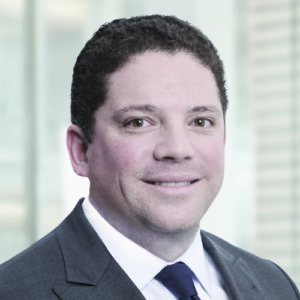
The following is an edited transcript of an interview conducted by financial advisor Darren Coleman’s of the Two Way Traffic podcast with tax expert Kim Moody, of Moody Private Client. It appeared on August 8th: click here for full link.
Moody recently wrote an article in the Financial Post about the government flirting with the idea of a home equity tax, even on principal residences. Such a tax could result in an annual levy of about $10,000 for a home worth $1 million. He described that, along with the increase in the capital gains inclusion rate that has already passed into law, “really bad tax planning” based on ideology, not economics.
In the podcast Moody and Coleman also discussed …
- The disparity between U.S. and Canadian tax rates, beginning with how the state of Florida compares with Ontario, a difference of 17%.
- The tax model established in Estonia lets you reinvest in your company without paying corporate tax while personal income is taxed at a flat rate of 20%. They say such a system would work in Canada, and celebrate success and entrepreneurship.
- What organizations like the Fraser Institute and mainstream economists think about Canada’s economic performance.
Below we publish an edited transcript of the start of the interview, focusing on the capital gains inclusion rate and trial balloon about taxing home equity.

Darren Coleman: I’m Darren Coleman, Senior Portfolio Manager with Raymond James in Toronto. I’m delighted to be joined by Kim Moody of Moody’s tax and Moody’s private client. You’re also a law firm based in Calgary, Alberta, and probably one of Canada’s best known tax and estate planning advisors. You may have heard our last conversation with Trevor Perry about some of the issues we might be seeing in terms of taxation of the principal residence in Canada.
I think because governments have spent so much money that we’re going to see tremendous innovation in taxation. Do you want to set the table for the article you wrote in the Financial Post, where you talked about where this is coming from, and why Canadians might be on alert for what might be coming to tax the equity in their homes.
Kim Moody: The point of the piece was mainly just to put Canadians on notice that you had the Prime Minister and the finance minister sitting down with what I call a pretty radical
think tank. I consider them an ideological bastion of radical thought but that issue aside,
they call them call themselves a think tank, and this particular one, led by Paul Kershaw of
Generation Squeeze, has stuff on their website that pretty much attacks older Canadians:
basically saying they’ve gotten rich by going to sleep and watching TV. Unbelievable. Whoever approved that, it’s just so offensive. But that issue aside, the whole connotation of the messaging is that, hey, these people are rich. We’ve got these poor young Canadians who are not rich and they can’t afford houses because you’re rich and …
Darren Coleman Someone should do something about it, right? That’s the trick.

Kim Moody: Someone should do something about it. And their solution is to introduce a so-called Home Equity tax on any equity of a million dollars or more. And they call it a modest surtax of 1% per year. So it’s like another, effectively property tax … It’s just so nonsensical and so offensive on a whole bunch of different levels. Like you think about grandma and grandpa, yeah, they’ve got equity in their homes, but they don’t have a lot of cash. They’ve been working hard their entire lives to pay off their houses. And yes, they want to transfer down to their kids at some point, but right now, they’re living again, and they’re making ends meet by living off their pensions that they worked hard, and you’re expecting them to shell out more money for that, and I find that offensive.
…. Back to the original premise of why I wrote the article: to let Canadians know that our leaders are entertaining stuff like this. It doesn’t mean they’re going to implement it, but they’re actually entertaining radical organizations like this and secondly, just to put Canadians on
notice that this is just the beginning. If this regime continues with out-of-control spending and no
adherence to basic economics, then we could expect a whole bevy of new taxes.
Darren Coleman
Indeed, they’ve already done some of this, right? So you know that this idea about we’re going to tax home equity, either through some kind of annual surtax on equity over a certain amount, or we’re going to put a capital gain on principal residences. And I would argue that for years now, Canadians have had to report the sale of the principal residence on their tax returns, which is a non-taxable event, yet you now have to tell them, and if you don’t, there’s a penalty.
I think that might just be to put the bureaucracy in place for what might be coming. But we’ve also seen, and I know you’ve also written about this, the latest change to the capital gains inclusion rate and the way in which they’ve justified some of that is also very curious. Do you want to talk like, for example, they talked about only point one, 3% of Canadians are affected by this change. Is that accurate?
Kim Moody
That number is so manipulative: when I saw that in the budget documents, when I read it on April 16, I thought, oh, geez, how are they getting this number? Because that’s just not right. Then they go on to explain how they get it. It’s like, oh, really, that’s your methodology? It’s this simple. They picked, I think it was 2022. So they said, okay, these are the reported capital gains, and these are the number of people who had over $250,000 and because of such a small number compared to the entire population of taxpayers, that’s 0.13% so they extrapolated from one year.
A lot of people have cottage properties, and rental properties to try to provide for their retirement. So the issue is that those capital gains will be realized either upon death, upon an eventual monetization or a gift to their children during their lifetime.
Darren Coleman Many of those returns were just inflation, by the way, which people saw, if you bought it in 1979 and you finally sell, sold it in 2025: well, that’s most of that is inflation when you’re paying tax on all that inflation.
Kim Moody There’s a big, big debate on all that, you know that goes back decades as to
whether or not you should even tax capital gains, given that it’s inflationary. Jack Mintz wrote an article on this very point, and he conservatively estimated that 1.25 million Canadians will be eventually affected by this proposal … Even if that number is very low, the number of taxpayers in Canada is about 29 million taxpayers today; our population is a lot higher.
Darren Coleman For most Canadians, they’re not going to be having this touch them until
there’s a deemed disposition at death, right? So mom or dad or whatever, pass away, the
cottage, the rental property, whatever it is, is sold, and a generation’s worth of equity is all
going to be realized at once, and that’s when that much higher capital gain comes in. So many
people walking around don’t think this applies to them. They’ll discover at that one moment in
time that, oh, it actually applies to you quite a bit.
Kim Moody Here’s another one. Jack hinted about this, but he didn’t do any math on it. I rang the
alarm bell pretty quickly on this. So, and you probably deal with a lot of pensioners: what are they investing in? What are pension funds in Canada typically investing in? Well, corporate real estate, yeah, or public companies that pay dividends? What happens if those companies have capital gains now? Well, they’re going to pay higher, higher tax, so which reduces the amount available to pay as a dividend, exactly.
So are we going to see over time, a statistically significant amount that is reduced on dividends to the extent that that public company has capital gains, which many of them do, the answer is yes, will we, and which ultimately means pension funds will come down. All Canadians will feel that, right, whether it’s either pensions, their RRSPs, whatever it is.
Darren Coleman I think the average Canadian walks around because of maybe some of the political rhetoric, thinking all these people are leaving this money in their corporations and cheating everybody, and they get all the loopholes and the writeoffs that I’d like to know what most of them are, but they apparently exist, and I’ve only done this for 32 years.
Kim Moody When they designed this, it was designed in a real hurry, and they
found these nice statistics that moved their narrative. You know, the 0.13% because
corporations are viewed to be for the rich, and therefore we’ll take care of the individuals on
the first $250,000 but we won’t worry about corporations and trusts because they’re viewed to be rich. So this was pure ideology in really bad tax policy. It’s as simple as that.
And then to compound it, even worse, they put this June 25 arbitrary deadline, which was roughly 10 weeks after the budget announcement, and they encouraged Canadians to monetize and crystallize to drive the bill up a bit higher. We had a few conversations with clients about should we do this or not do this? What I found offensive is that in the budget documents, they budgeted $7 billion of extra tax revenue for monetizations and crystallizations.
Darren Coleman What are a couple things you recommend people do to try and I don’t they can’t really insulate themselves from it, or at least try to incorporate some of these changes into their own planning. Any advice to them?
Kim Moody What I can tell you is that people are getting spooked by all these very bad changes
that is driving a massive increase in people wondering if they should leave Canada, and then
a massive increase of people leaving Canada. For every four people who ask about it, one is actually pulling the trigger and leaving. The capital gains inclusion rate increase was the final straw for a lot of my clients and a lot of people I know, a lot of other practitioners had clients that said Moody, just get me the hell out. Do it now. Even last week, I had four new files on very successful
Canadians who want out: they just said this and no more. And we’re not seeing four successful people from other countries necessarily showing up.
Disclaimer:
Here’s the Raymond James disclaimer on Two-way Traffic:
The opinions expressed on two way traffic are those of Darren Coleman and are for general
information purposes only. It does not constitute any legally binding engagement between the
podcasters and anyone else. Always check with your advisors to obtain your own tax or
investment advice. welcome to two way traffic with Darren Coleman of Portage cross border Wealth Management. In this series, Darren aims to guide you through the complexities, complications, implications, and most importantly, the advantages of having money and family on both sides of the border.

